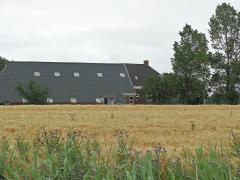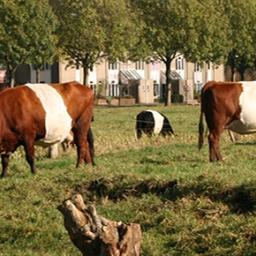The wicked problem the Water Framework Directive cannot solve
Nutrients (nitrates, phosphates) from agricultural sources remain a ‘wicked problem’ in realizing the aims of the Water Framework Directive (WFD), partly because the directive has to rely on neighboring policies to reduce the pressure of nutrients. This article concludes that the major challenge is to find a balance between taking source-based measures, and accommodating the difficult situations farmers very often find themselves in, as the reduction of nutrients (as a source-based measure) use can lead to lower yields and higher costs for manure disposal.
The Water Framework Directive (WFD) is typically a framework directive that tries to encourage integration of policies for water quality and agriculture. Nutrients (nitrates, phosphates) from agricultural sources remain a ‘wicked problem’ in realizing the aims of the WFD, partly because the directive has to rely on other, neighboring policies to tackle to problem pressure of nutrients; it seems to lack instruments and measures to directly intervene in relevant agricultural policies.
Large differences in governance approaches between countries
This contribution describes the different governance approaches of five member states and regions (The Netherlands, Flanders in Belgium, Lower Saxony- in Germany, Denmark and Ireland) to the nutrients problem and specifically focuses on the relationship between the nature of governance and the nature of measures taken. On the one hand, countries can vary in terms of a more consensual or antagonistic approach to dealing with water quality and diffuse pollution by agriculture, and emphasize more integration or separation in organization and programs. On the other hand, they can vary in the ‘outcomes’ in terms of more source-based measures or effect-based measures and the emphasis in policy instruments used. This article is based on the screening of policy documents, 44 interviews and several (international) feedback workshops. We found a great variety in governance approaches, while the nature of measures, in terms of source-based and effect-based, is only slightly different. On closer inspection, there are interesting differences in the consensual or antagonist discourses and differences in the use of more mandatory instruments or area-based policies. In many countries, the major challenge is to strike a balance between taking source-based measures, where necessary, and accommodating the difficult situations farmers very often find themselves in, as the reduction of nutrients (as a source-based measure) use can lead to lower yields and higher costs for manure disposal.
Authors
Specifications
- Publication title
- The wicked problem the Water Framework Directive cannot solve
- Publication subtitle
- The Governance Approach in Dealing with Pollution of Nutrients in Surface Water in the Netherlands, Flanders, Lower Saxony, Denmark and Ireland
- Publication date
- 26 April 2020
- Publication type
- Article
- Page count
- 22
- Publication language
- English
- Magazine
- Water
- Issue
- 12(5): 2020
- Product number
- 4242




